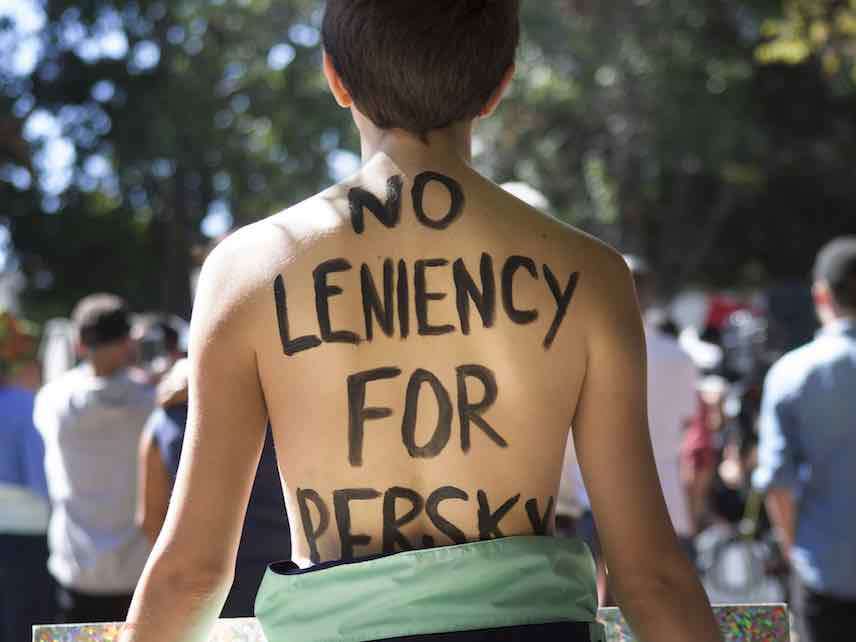Recalling Aaron Persky, the Judge Who Showed Brock Turner Leniency, Is a Mistake That Will Haunt Progressives
California voters just encouraged judges to show no mercy.

Residents of Santa Clara County, California, voted yesterday to recall Aaron Persky, the superior court judge widely criticized for sentencing Stanford student Brock Turner to just six months in prison.
Turner was convicted in 2016 of sexually assaulting an incapacitated woman. Prosecutors had sought a six-year sentence, but Persky thought Turner probably wasn't a danger to others and was concerned a lengthier prison stint would adversely impact him.
This outraged Stanford law professor Michelle Dauber—whose daughter is friends with Turner's victim—and so Dauber launched a now-successful campaign to have Persky recalled from office. The point of the recall was to hold "white, privileged men accountable," Dauber told The New York Times.
The prison component of Turner's sentence was indeed lenient. But a simple fact has often been absent from this conversation: The six-month sentence wasn't Persky's idea, but rather the recommendation of the probation department. And even if Turner should have spent more time behind bars, he is still registered as a sex offender and likely will be for the rest of his life. He will have trouble finding a place to live, holding a job, and interacting with young people. Sex offenders are treated as pariahs and must obey onerous restrictions, even in cases where they pose almost no risk to others.
But even people who can't muster any sympathy for Turner should still be concerned about what message Persky's recall will send. I understand why members of the Stanford community were upset about the lenient treatment of Turner, and it's easy to imagine white privilege had something to do with it. (The California Commission on Judicial Performance, it must be noted, found no "clear and convincing evidence of bias" in Persky's decision-making.) But this recall is likely to encourage judges to be tougher in general lest angry voters come for them too. This was a blow to leniency for all criminal defendants.
Evidence already exists that judges impose harsher sentences around election time. According to a 2015 Brennan Center study, "The pressures of upcoming re-election campaigns affect judicial decision-making in criminal cases, making judges more likely to impose longer sentences, affirm death sentences, and even override sentences of life imprisonment to impose the death penalty." When judges are subjected to normal political considerations, they unsurprisingly behave like politicians, for whom being tough on crime is usually a winning stance.
That's one reason LaDoris Cordell, a retired California judge and self-described liberal feminist, vehemently opposed the recall effort, according to The Times:
Ms. Cordell wears her liberal stripes proudly, but she said she is worried the recall effort could influence judges who might otherwise show leniency in criminal sentencing, undermining a longtime goal to decrease the prison population. The impulse toward harsher sentencing, she said, is reminiscent of the measures that have fed large increases of prison populations, like California's three-strikes law, which imposed an automatic life sentence for a third felony conviction.
Progressives who support criminal justice reform, the repeal of mandatory minimum sentencing, an end to mass incarceration, and rehabilitation should pause before cheering the recall of Judge Persky. The window to punish Turner has shut. The next person to come before a California judge might be a far less privileged defendant, hoping for mercy and less likely to get it.


Show Comments (104)